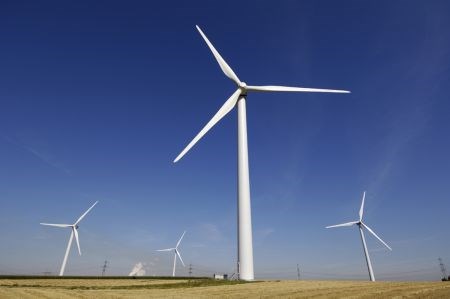Recommendations from a three-day renewable energy conference, being held in Sudbury Feb. 21-23, will be forwarded to Premier Dalton McGuinty, with the goal of opening up the dialogue surrounding the expansion of energy transmission lines across the province.
Green-X1, hosted at the Radisson Hotel, is a collaborative initiative of MERE Inc. of M'Chigeeng First Nation, Northland Power, Mnidoo Minising Power, the Anishinabek Nation and the Manitoulin Wind and Solar Institute. Attendance is open to anyone interested in learning more about alternative energy and how to navigate the policies relating to renewable energy development.
The focus of the conference is the Northern Ontario Growth Plan and the 2011 Integrated Power System Plan (IPSP), as proposed by the Ontario Power Authority.
Without an imminent plan to expand the province's energy transmission lines across the province, renewable energy projects cannot move forward, and it puts certain areas of the province at a disadvantage, said organizer Chief Joe Hare, of M'Chigeeng First Nation on Manitoulin Island.
“There are a lot of pent-up projects on energy development that produce hydro,” Hare said. “Presently, the government of the day is not entertaining any more projects in this part of Northern Ontario...and they are not going to expand the transmission lines that carry electricity throughout the region, which makes it impossible to transport the electricity that might be produced by a developer.”
That means smaller communities like those in the Great Lakes area, despite being some of the strongest wind-generating regions in the province, cannot proceed with renewable energy projects that have been in the works for years, something Hare believes is blatantly unfair.
On his home reserve of M'Chigeeng First Nation, the Mother Earth Renewable Energy (MERE) project is well underway. Comprised of a pair of 2 MW wind turbines situated on a bluff overlooking the community, the project is fully owned by the First Nation and proceeds from the sale of energy to the province will go directly back into the community.
The turbines were erected throughout the fall, and the turbines are now functioning and hooked up to the provincial grid. Currently in the commissioning phase, the turbines will undergo a testing period over the next 20 days to ensure they are functioning as predicted, but if all goes well, the turbines will be producing power by mid-March.
There's only one problem, Hare said. There's no room for growth, so the community can never expand beyond MERE's current capabilities, and other projects slated for development on the island can never move forward.
“I think we should all be very indignant at the way the government is shutting out this area,” Hare said. “We're trying to engage other municipalities as time goes by so that they can speak up as well, if they want.”
GreenX-1 will provide municipalities with the opportunity to make known their concerns and discuss potential solutions. The first day will focus on opportunities in the green energy sector, day two will look at business development, process and due diligence, and day three will concentrate on strategic planning and moving forward.
Guest speakers include Hare, Northland Power CEO John Brace, Kapuskasing Mayor Al Spacek, and Union of Ontario Indians Grand Council Chief Pat Madahbee.
Algoma-Manitoulin-Kapuskasing MPP Mike Mantha, who also serves as NDP energy critic, has agreed to speak at the conference, but other invited dignitaries declined, citing the return to the House of Commons.
Hare said the conference will give residents and potential developers a chance to state their interest in gaining access to energy-development opportunities available through the Green Energy Act, and showing government the need to take their concerns into consideration.
“If they are proceeding with their plans not to do anything in this area, they're shutting out the whole of this region from energy development,” Hare said. “We hope to show that there are many projects in the offing and that we need to become part of the opportunities to sell hydro for consumption in southern Ontario.”
The M'Chigeeng chief said recommendations from the conference will be catalogued and sent to the premier for consideration.




